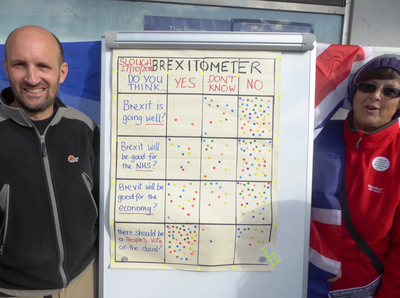Slough Lib Dems demand better public services and a People’s Vote
The case for better public services and a People's Vote on Brexit are closely linked.
In a letter to Slough Express, local Lib Dem campaigner Josephine Hanney explained: "Brexit is already causing major problems for our economy, and reduces the money (and staff) for public services, such as health, social care and policing, in Slough and across the country."
A People's Vote on the Brexit deal, with an option to remain in the EU would allow people to vote to remain in the EU now they can see the damage that Brexit is causing to our public services and the economy. More of the health and social care workers from the EU who have been making an important contribution in Slough, and across the UK, are leaving because of the uncertainties created by Brexit. There would be more money for public services if the economy had not already been so damaged by Brexit. For example, the car industry in the UK is suffering, with an accelerating 80% drop in investment since 2015.
Josephine Hanney said: "there is evidence of strong support in Slough for a People's Vote on the Brexit deal, with an option to remain in the EU. For example, as shown in the photo, when Matthew Taylor and I, along with other local Lib Dems, asked shoppers in Langley their views, most thought Brexit was not going well, and they wanted a People's Vote."
A slightly edited version of Josephine's letter was published in the Slough Express on Friday 8 Feb. A fuller version is available here: A People's Vote is needed for the sake of our future
